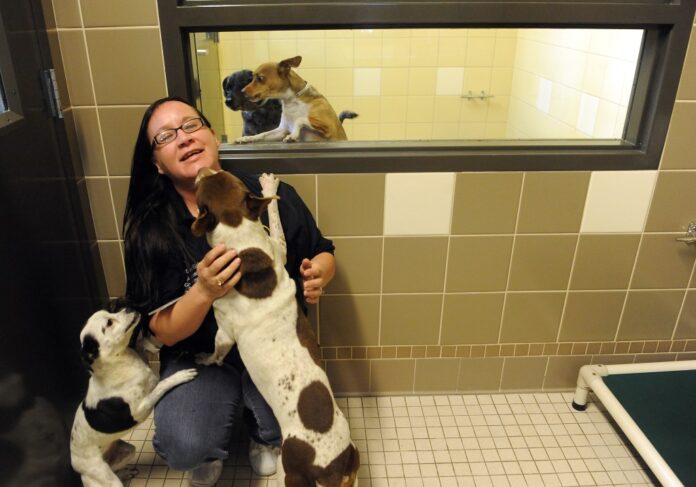
There is popular terminology used in animal welfare that is particularly divisive and disturbing. When you hear the term “no-kill” shelter, you probably assume that shelter is doing the best thing for the animals in its care.
What you might not know is that “no-kill” policies don’t guarantee animals receive the best treatment or even prevent them from dying. Instead, these shelters can simply turn the neediest animals away, leaving another kind of shelter and its employees to deal with the worst cases of sick and injured animals and horrific cases of abuse and neglect that often result in severe behavioral problems. The shelters that operate as a safety net for these animals are called “open admission” shelters.
What’s the difference? Typically, a “no-kill” shelter has the luxury to choose which animals they accept. When animals are unadoptable, or space is limited, they can be turned away from “no kill” shelters.
However, those animals won’t be turned away from an “open-admission” shelter. The Denver Animal Shelter is an open-admission shelter for all animals. Every animal is welcomed regardless of space available, age, breed, health, temperament or physical condition. We take them all, 365-days-a-year, 24/7. A “no-kill” shelter works well when an “open-admission” shelter is operating nearby.
But most people don’t use the term “open-admission.” They use “kill” shelter, referring to us and others as “a kill shelter.”
I can’t stress enough the damage this language does to the people working in these shelters — the same people dedicated to helping all animals and who work on the front lines of Denver’s current homeless pet crisis.
Using the word “killer” to describe those who rescue and care for animals that have suffered unspeakable acts of cruelty and who are then often left to make life-and-death decisions is not only offensive, it’s untrue. Killing implies malicious intent. There’s no malice involved in what we do.
“No-kill” language and policies don’t reduce the number of homeless pets, but it does stigmatize the people working to provide the best outcomes for these animals. The extraordinary people who work at the Denver Animal Shelter do so because they love and care about animals and people.
When the difficult decision is made to euthanize an animal, it’s about providing the most caring outcome for a cat hit by a car or an aggressive dog that can’t be safely placed in a home. Euthanasia is an act of compassion that occurs only when there is no responsible alternative.
The animal welfare conversation should focus on prevention and assistance. The Denver Animal Shelter’s preemptive, progressive programs work toward decreasing the need for animal shelters to exist – striving to keep pets with their people whenever humanely possible.
We tirelessly care for homeless and unwanted animals and provide resources to help people care for their animal companions. We provide low-cost medical care, including vaccinations and spay/neuter, pet supplies, and more to Denver’s most vulnerable pets. Our Animal Protection Officers work day and night rescuing animals from sickening cruelty and neglect situations. Our goal is that no animal in our care will be euthanized except those for whom euthanasia is necessary to relieve their suffering or for the safety of people and other animals.
To accomplish this goal, we need your help. Adopt locally, don’t buy a pet; spay/neuter and microchip your pet; be a responsible pet owner and properly socialize and care for your pet for the pet’s lifetime; volunteer; and support services and programs that improve the lives of animals and people.
And remember, words matter. Using hateful language is irresponsible and hurts those committed to helping all animals. Learn the facts about open-admission shelters — visit us at the Denver Animal Shelter.
Melanie Sobel is the director of Denver Animal Protection and oversees the Denver Animal Shelter, Denver’s open-admission shelter. She has over 23 years of animal welfare experience in government open-admission shelters in Chicago, Milwaukee and Santa Cruz County.
Sign up for Sound Off to get a weekly roundup of our columns, editorials and more.
To send a letter to the editor about this article, submit online or check out our guidelines for how to submit by email or mail.



